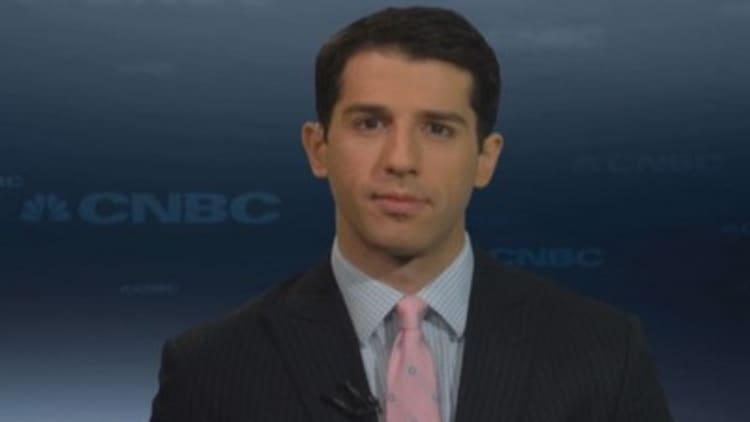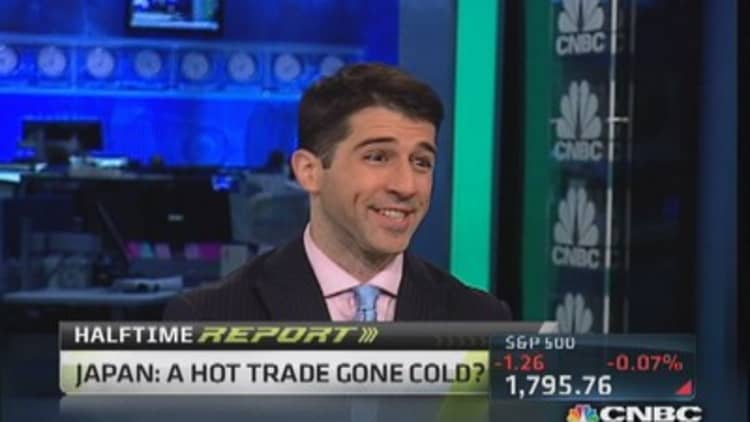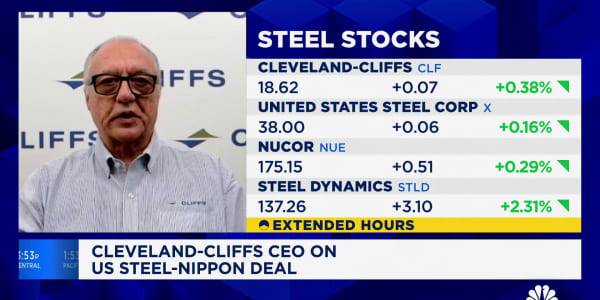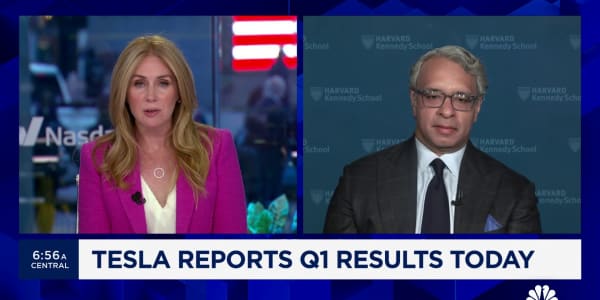
Hedge fund managers are still bullish on Japan despite a painful start to the year.
After large gains in 2013, the Nikkei 225 stock index is down nearly 11 percent this year. The Japanese yen, which many investors were betting against, has also appreciated almost 3 percent versus the U.S. dollar.
Those broad moves have cost investors: The average Japanese stock-focused hedge fund fell an estimated 5.75 percent over the first quarter, according to data from Simplify, which tracks performance.
Hedge funds appear to be unfazed by the bad news.
An April survey of investment managers by Bank of America Merrill Lynch showed that there had been "minimal change" in Japanese positioning, with exposure to the country decreasing by only about 3 percent from March to April. Shorts on the yen even increased slightly in recent weeks.
Read MoreWhy Japanese bonds look 'terrible': Kyle Bass
One example of continued bullishness despite losses came from Eton Park Capital Management, the Eric Mindich-led firm that managed $9.67 billion as of Dec. 31.
"We continue to be very positive on our positions in Japan. We believe in the company-specific stories and industry dynamics of the stocks we own and feel that their valuations are attractive on both an absolute and relative basis," Eton Park wrote in a letter to investors on April 15 in noting that Japan was the firm's biggest focus.
"Additionally, we have seen that strong management and leadership can really drive change and create shareholder value in Japan, a dynamic that we feel is sometimes underestimated by the market."
The Eton Park Overseas Fund gained just 0.23 percent net of fees in the first quarter. The firm suffered unspecified losses over the first three months of the year on its Japanese positions, the letter said. Current positions include Sumitomo Mitsui Financial Group and Coca Cola East Japan.
The firm cited several reasons for its bullishness, including continued domestic support for aggressive economic stimulus, or "Abenomics," the central bank's commitment to a 2 percent inflation target, and tax and other regulatory reforms.
A spokesman for Eton Park declined to comment.
Another to suffer is Hugh Hendry's London-based Eclectica Asset Management. The firm's largest regional exposure is Japan at nearly 30 percent of the portfolio, and equity investments in real estate and local indexes cost a combined 0.6 percent in the first quarter, according to a letter sent to investors in the $427 million Eclectica Fund.
The firm said its "long-standing thesis remains intact" that "radical monetary policy will lead to an upside acceleration in Japanese equity markets." But it also noted that the recent losses had caused it to restructure its bets using call options that would benefit if the market had large gains or losses, effectively hedging Eclectica's positions for further market swings.
The firm, which is down 5.8 percent overall in the first quarter, didn't respond to a request for comment.
A third example is Henderson Global Investors, whose $358 million AlphaGen Japan Absolute Return strategy fell 3.1 percent in the first quarter.
"Our view is that we would seem to be at, or close to, a point of maximum uncertainty. Valuations remain very attractive," fund managers William Garnett and Jeremy Hall wrote in a recent letter to investors.
Its largest long positions—bets on the appreciation of a stock—include Fujitsu and Mitsubishi UFJ Financial Group. The firm did not respond to arequest for comment.
Other firms burned by investments in Japan earlier this year include Balestra Capital, Caxton Associates and Brevan Howard Asset Management.
Read MoreThese big hedge funds got crushed by Japan in January

Losses this year come as the Japanese government remains optimistic about its economy recovery plain.
"As the world will see during [President Barack] Obama's visit, Japan is back and thriving. And its return is indispensable for global stability and prosperity," Prime Minister Shinzo Abe said in a CNBC.com guest commentary Monday.
Read MoreAbe Op-Ed: The second opening of Japan
Hedge fund managers believed that message in 2013—and profited handsomely from it. The average Japanese stock-focused hedge fund gained 54.93 percent in 2013—according to the Simplify Global Hedge Fund Performance Report.
—By CNBC's Lawrence Delevingne.






